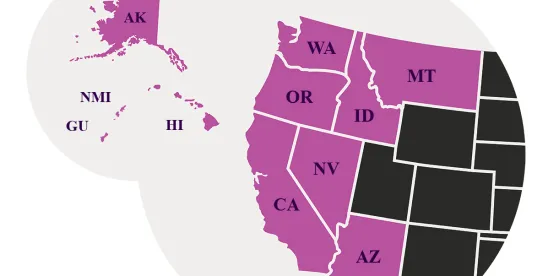Addressing an issue of first impression, and one that is becoming increasingly important as the legal industry has become more comfortable with and dependent on video conference technology in the aftermath of the pandemic, the Ninth Circuit has ruled that the 100-mile limitation under Rule 45(c) of the Federal Rules of Civil Procedure applies to remote testimony.
In In re John Kirkland, et al. v. USBC, Los Angeles, the petitioners, Mr. and Mrs. Kirkland who resided in California before relocating to the U.S. Virgin Islands, moved to quash subpoenas commanding them to testify via video conference at a trial before a bankruptcy court in the Central District of California. The bankruptcy court denied the motions finding that “good cause and compelling circumstances” existed to warrant the petitioners’ remote testimony pursuant to Rule 43(a), which provides that “[a]t trial, the witnesses’ testimony must be taken in open court unless a federal statute, the Federal Rules of Evidence, these rules, or other rules adopted by the Supreme Court provide otherwise[; and f]or good cause in compelling circumstances and with appropriate safeguards, the court may permit testimony in open court by contemporaneous transmission from a different location.” The bankruptcy court also concluded that Rule 45(c)’s “place of compliance” should be based on where a witness is located as requiring a witness to testify remotely from the witness’s home is not contrary to the purpose of Rule 45(c), which is to protect witnesses from the burden of having to travel extensively to testify at a trial or other proceeding.
The petitioners filed a mandamus petition seeking an order directing the bankruptcy court to quash the subpoenas. The Ninth Circuit granted the petition finding the bankruptcy court “clearly erred” in its interpretation of Rules 43(a) and 45(c).
Rule 45(c)(1) provides that the “place of compliance” for subpoenas and the geographical scope of a court’s authority to command a witness to testify at a trial, hearing, or deposition are: “(A) within 100 miles of where the person resides, is employed, or regularly transacts business in person; or (B) within the state where the person resides, is employed, or regularly transacts business in person, if the person (i) is a party or a party’s officer; or (ii) is commanded to attend a trial and would not incur substantial expense.”
As it was undisputed that the petitioners do not reside, work, or regularly conduct in-person business in California, the Court concluded that Rule 45(c)(1)(B) did not apply and examined the applicability of the 100-mile limitation under Rule 45(c)(1)(A) to a subpoena requiring a person to testify remotely at trial.
First, the Court concluded that while Rule 43(a) governs the mechanics of how trial testimony is presented, Rule 45(c) governs a court’s authority to require witnesses to testify at trial; and determining a court’s power to do so logically precedes any determination of how the witness’s testimony should be presented. Second, the Court rejected the trustee’s contention that interplay between the two rules exists so to permit a court to compel a witness’s testimony beyond the 100-mile limitation. The Court reasoned that Rule 43(a) does not change the “place” in Rule 45(c)(1) from the location of the trial, hearing, or deposition to the location of the witness, and the “places” described in Rule 45(c)(1) refer to the proceedings that are located within the geographical proximity to the witness as prescribed by that rule. Lastly, the Court cited Rule 32(a)(4) as lending support to the conclusion that Rule 43(a) does not “recalibrate” the 100-mile limitation of Rule 45(c)(1) to a witness’s location from the location of the proceeding. The Court determined that “all witnesses—even those appearing remotely—must be compelled to appear, and a court can only compel witnesses who are within the scope of its subpoena power.”
While the Court acknowledged there is appeal in the trustee’s and bankruptcy court’s view that Rule 45(c)’s “place of compliance” should be based on where the witness is located instead of where the proceeding is taking place, the Court explained the drawbacks of this approach, one of which was its tension with Rule 45(c)’s plain language that “trial subpoenas command a witness to attend a trial.” Despite the changing landscape as to how and where trials are conducted in the wake of the pandemic, based on the ordinary meaning of the statutory language at the time of its adoption, “[a] trial is a specific event that occurs in a specific place: where the court is located.” Still, the Court noted the evolving expectations for how legal proceedings should be conducted and pronounced that any material changes to federal subpoena power are reserved for the “Rules Committee” and not the Court.



 />i
/>i

